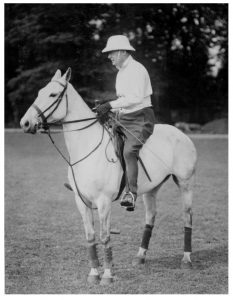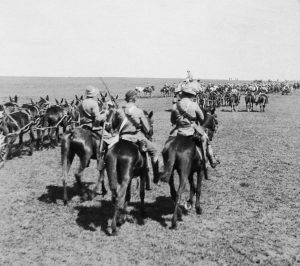
StoryLine
Colonial Secretary, 1921–22

Winston Churchill, Parliament Square, London © Sue Lowry & Magellan PR
January 1, 1970
The Middle East
At the beginning of the First World War, the areas now known as Iraq, Jordan, Syria, Israel and most of Saudi Arabia had been part of the Ottoman Empire. When the Ottoman Empire joined the Central Powers in the war, the British supported Arab tribal revolts against their Ottoman rulers in order to hamper the enemy action in Europe. After the war, the Arabs expected immediate independence for their support of the British. What they got was a French protectorate for Syria and a British protectorate for the rest, with British troops occupying these newly created states carved out of the old Ottoman Empire. By 1920, Arabs in Mesopotamia – modern-day Iraq – rebelled against the British by assassinating local officials.
Churchill was tasked with the complex process of managing the situation in the Middle East. Keen to limit the expense involved in the British occupation of the former Ottoman territories of Palestine and Mesopotamia (Iraq), he proposed that they should be run by a Middle East department of the Colonial Office. Set up in February 1921, its staff included T. E. Lawrence, ‘Lawrence of Arabia’.
At the Cairo conference in March 1921, Churchill set the boundaries and established the regimes of what are now Jordan and Iraq. He also tried to establish a Jewish National Home – in Palestine, west of the River Jordan – as well as the protection of rights of Palestinians as called for in the Balfour Declaration. But finding common ground here was not – and never has been – easy as the situation today demonstrates.
Subscribe
WANT MORE?
Get the Churchill Bulletin delivered to your inbox once a month.




